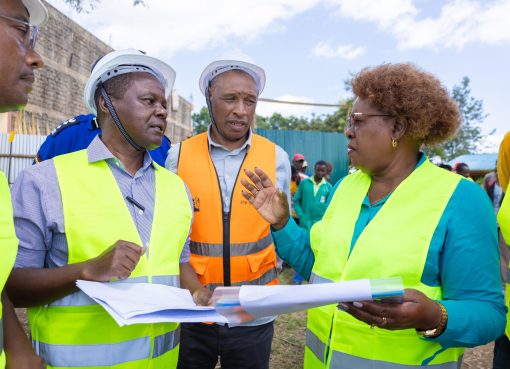Members of the public have proposed to the Committee reviewing the Power of Mercy to ensure that the criminal records of pardoned offenders are expunged.
Sealing of records of pardoned offenders would allow them seek police clearance certificates which will help them in securing jobs.
According to Dr. Lydia Muriuki, Chief Executive Officer, Power of Mercy Advisory Committee (POMAC), members of the public were concerned about the challenges faced by offenders who have been released into the community but still have criminal records for the offence for which they were convicted.
Muriuki noted that many offenders often relapse into crime due to stigma from the society and difficulty in acquiring documents like Certificate of Good Conduct that may enable them to get employment.
“Ex-convicts who have been pardoned and reformed have difficulty accessing Police Certificates of Good Conduct. They are not able to apply for jobs due to lack of the certificate thus easily slip back into criminal activities,” she added.
Speaking in Kajiado town during a stakeholder’s validation exercise, Muriuki revealed that a free or conditional pardon within the meaning of Article 133 will be granted in the form of a record suspension, with the effect that the person’s criminal record is sealed and a search on the criminal database will result in a nil record.
“The record suspension will be conditional on maintaining a clean record, so that it is automatically revoked if the ex-offender is subsequently convicted of an offence, in which case the record is unsealed by the DCI,” she added.
Another issue raised by the public was the low level of supervision for pardoned offenders. They proposed the establishment of a county based multi-agency committee to support the probation department with the monitoring of offenders.
Introduction of a Parole system, which is a strict conditional release into the community under the supervision of a parole officer will ensure that the pardoned offenders are properly supervised.
An offender under parole is still serving the sentence that was imposed and therefore if the conditions of release are violated, then the parole is revoked and the offender returned to prison to serve the remainder of the sentence.
POMAC Vice Chairperson Dr. Janet Kirui emphasized the need to establish a proper social reintegration programme to provide offenders with the assistance they may need to reintegrate into the community and avoid relapsing into crime.
Implementation of a National Aftercare Policy and Bill by the Correctional Services will aid in resettlement and reintegration of offenders released from prisons and mental hospitals.
The Power of Mercy Committee is established pursuant to Article 133 of the Constitution to advise the President on the exercise of Power of Mercy. The Constitution allows the President, on the petition, to grant free or conditional pardon to a person convicted of an offence.
According to the law, the President can decide to postpone the carrying out of a punishment, either for a specified or indefinite period, substitute a less severe form of punishment, or remit all or part of a punishment.
The POMAC is in the process of validating views from members of the public in 24 Counties on review of laws relating to the Exercise of the Power of Mercy under Article 133 of the constitution.
The draft Power of Mercy bill which will be presented to parliament is expected to decongest prisons.
Any person who is a convicted prisoner and is not serving a non-custodial sentence or having a pending case in court can apply for a pardon. The petitioner must have however served a third of the sentence with those on life or death sentence having served at least five years.
By Rop Janet





